
André Paul Guillaume Gide was a prolific French writer and author whose writings spanned a wide variety of styles and topics. He was awarded the 1947 Nobel Prize in Literature. Gide's career ranged from his beginnings in the symbolist movement, to criticising imperialism between the two World Wars. The author of more than fifty books, he was described in his obituary in The New York Times as "France's greatest contemporary man of letters" and "judged the greatest French writer of this century by the literary cognoscenti."

Serge Gainsbourg was a French singer-songwriter, actor, composer, and director. Regarded as one of the most important figures in French pop, he was renowned for often provocative releases which caused uproar in France, dividing public opinion. His artistic output ranged from his early work in jazz, chanson, and yé-yé to later efforts in rock, zouk, funk, reggae, and electronica. Gainsbourg's varied musical style and individuality make him difficult to categorise, although his legacy has been firmly established and he is often regarded as one of the world's most influential popular musicians.

Jane Mallory Birkin was a British actress, singer, style icon, and designer. She had a prolific career as an actress, mostly in French cinema.
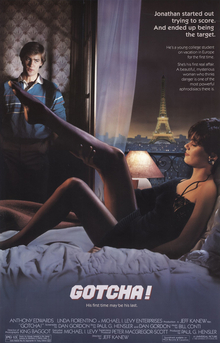
Gotcha! is a 1985 American spy action comedy film, starring Anthony Edwards and Linda Fiorentino and directed by Jeff Kanew, who also directed Edwards in Revenge of the Nerds (1984).

I Don't Kiss is a 1991 French drama film directed by André Téchiné, starring Manuel Blanc, Emmanuelle Béart and Philippe Noiret. The plot follows a young man who leaves his provincial home in the Pyrenees, going to Paris, hoping to become an actor. A promising beginning is followed by disillusionment and he ends on the street as a prostitute. The film is a grim, melancholic portrait of a young man searching and failing to find meaning in his life. The film had a total of 472,187 admissions in France.
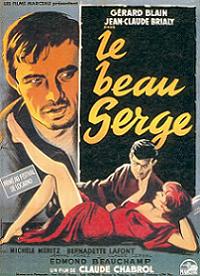
Le Beau Serge is a 1958 French film directed by Claude Chabrol. It has been cited as the first product of the Nouvelle Vague, or French New Wave, film movement. The film is often compared with Chabrol's subsequent film Les Cousins, which also stars Gérard Blain and Jean-Claude Brialy.
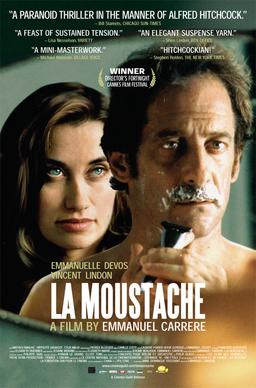
The Moustache is a French film from 2005, directed by Emmanuel Carrère and starring Vincent Lindon, and adapted from Carrère's own novel The Moustache. The film features music from a violin concerto by Philip Glass. The film was awarded the Label Europa Cinemas prize at the 2005 Cannes Film Festival and is currently distributed theatrically in the United States by the Cinema Guild with a DVD release handled by Koch-Lorber Films. The film is based on a 1986 book of the same title by Carrere.

Sundays and Cybèle is a 1962 French drama film in Franscope, directed by Serge Bourguignon. Its original French title is Cybèle ou Les dimanches de Ville d'Avray, referring to the Ville-d'Avray suburb of Paris. The film tells the tragic story of a neglected young girl who is befriended by an innocent, but psychologically damaged, veteran of the French Indochina War. Bourguignon wrote the screenplay with Antoine Tudal, and he and Bernard Eschasseriaux, the author of the novel upon which the film is based, are credited with the dialogue.
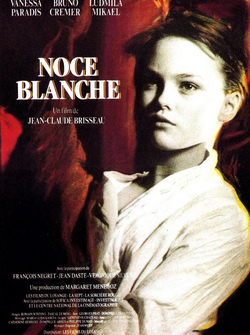
Noce Blanche is a 1989 French romantic drama film written and directed by Jean-Claude Brisseau. It stars Vanessa Paradis, Bruno Cremer and Ludmila Mikaël, with François Négret, Jean Dasté and Véronique Silver.
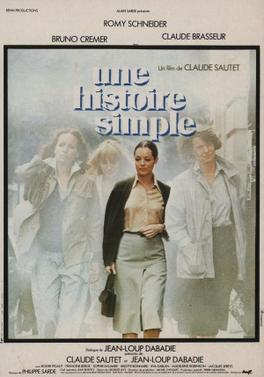
A Simple Story is a 1978 French drama film directed by Claude Sautet. It was nominated for the Academy Award for Best Foreign Language Film at the 52nd Academy Awards. For her role as Marie, Romy Schneider won the 1979 César Award for Best Actress.

A feral child is a young individual who has lived isolated from human contact from a very young age, with little or no experience of human care, social behavior, or language. Such children lack the basics of primary and secondary socialization. The term is used to refer to children who have suffered severe abuse or trauma before being abandoned or running away. They are sometimes the subjects of folklore and legends, often portrayed as having been raised by animals. While there are many cases of children being found in proximity to wild animals, there are no eyewitness accounts of animals feeding human children.
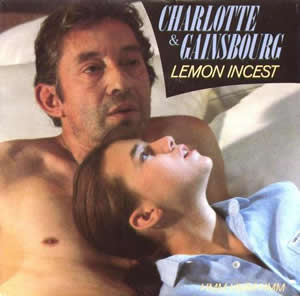
"Lemon Incest" is a song recorded by French father and daughter Serge and Charlotte Gainsbourg. It was recorded in 1984 and released as a single from Serge's 1985 album Love on the Beat and on Charlotte's 1986 debut album Charlotte For Ever, marking her musical debut. It is a pop song about a relationship between Serge and Charlotte, the latter of whom was 12 or 13 years old at the time, set to the melody of Frédéric Chopin's Étude Op. 10, No. 3. Its title is a play on the French term un zeste de citron, which translates to lemon zest in English.
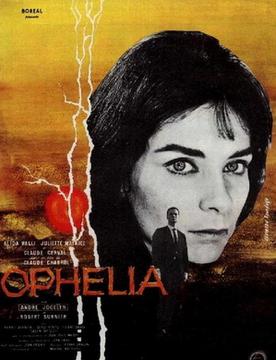
Ophélia is a 1963 French drama film directed by Claude Chabrol. The story centers on a disturbed young man who becomes obsessed with the idea that his life mirrors that of the title character of William Shakespeare's play Hamlet.

The Refuge or Hideaway is a 2009 French drama film directed by François Ozon, starring Isabelle Carré and French singer Louis-Ronan Choisy, who wrote the music for the film and the title song. The script was written by Ozon with Matthieu Hippeau.
Tony Duvert was a French writer and philosopher. In the 1970s he achieved some renown, winning the Prix Médicis in 1973 for his novel Paysage de Fantaisie. Duvert's writings are notable both for their style and core themes: the celebration and defence of pedophilia, and criticism of modern child-rearing. In the 1970s, attitudes to sexual liberation and child sexuality allowed Duvert to feel his views were acceptable, however he was in strong opposition later.
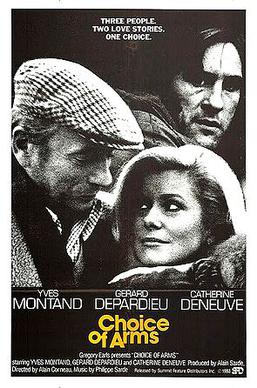
Choice of Arms is a 1981 French crime film directed by Alain Corneau. The main roles are played by Yves Montand, Catherine Deneuve and Gerard Depardieu. Although in structure a crime film, it is as much a character study of people under stress and an examination of aspects of French society.

Une vie also known as L'Humble Vérité and often translated as "A Woman's Life" is the first novel written by Guy de Maupassant. It was serialised in 1883 in the Gil Blas, then published in book form the same year as L'Humble Vérité.
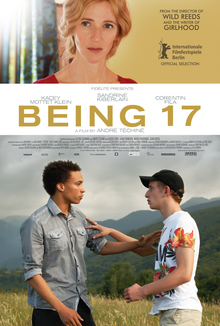
Being 17 is a 2016 French drama film directed by André Téchiné and starring Kacey Mottet Klein, Corentin Fila and Sandrine Kiberlain. The script was written by Téchiné in collaboration with Céline Sciamma. The plot follows the romantic and sexual awakening of two seventeen-year-old boys as their initial animosity, expressed in violence, morphs into love. Being 17 borrows its title from the second half-line of the first verse of Roman, (1870) by Arthur Rimbaud: On n'est pas sérieux quand on a dix-sept ans.
Three Seats for the 26th is a 1988 French romantic musical film, written and directed by Jacques Demy to music by Michel Legrand. Set in Marseille, it shows the singer and actor Yves Montand returning to the city where he grew up and looking up old friends, including his first love Mylène, who had been a prostitute and is now the wife of a jailed baron. The purpose of his visit is to rehearse a stage musical based on his life, where he falls in love with the female lead named Marion, the daughter Mylène had after they parted. It was Demy's last picture.
The Duhamel scandal was a 2021 scandal involving a leading Parisian social and political sciences university, Sciences Po. The scandal originated from accusations in a book written by Camille Kouchner, La Familia Grande. In that book, Kouchner, daughter of former minister Bernard Kouchner, accused Olivier Duhamel, her step-father, of sexually abusing her twin brother. The resulting outrage resulted in multiple resignations from the school and in Duhamel's confession. The public questioned Sciences Po's handling of the alleged activity, but the school was ultimately exonerated.

















